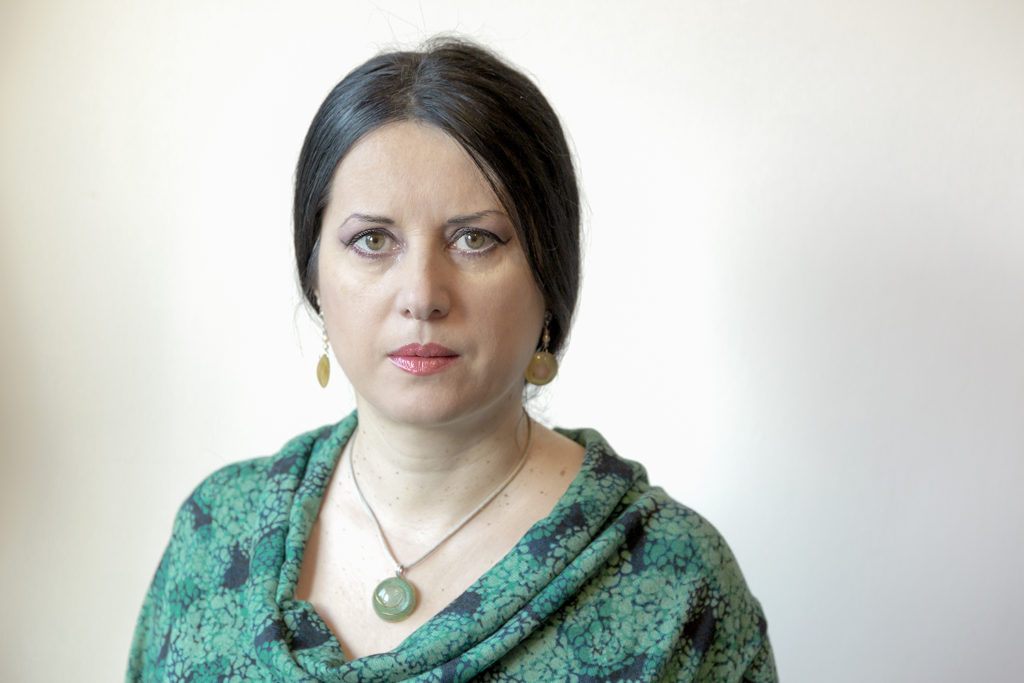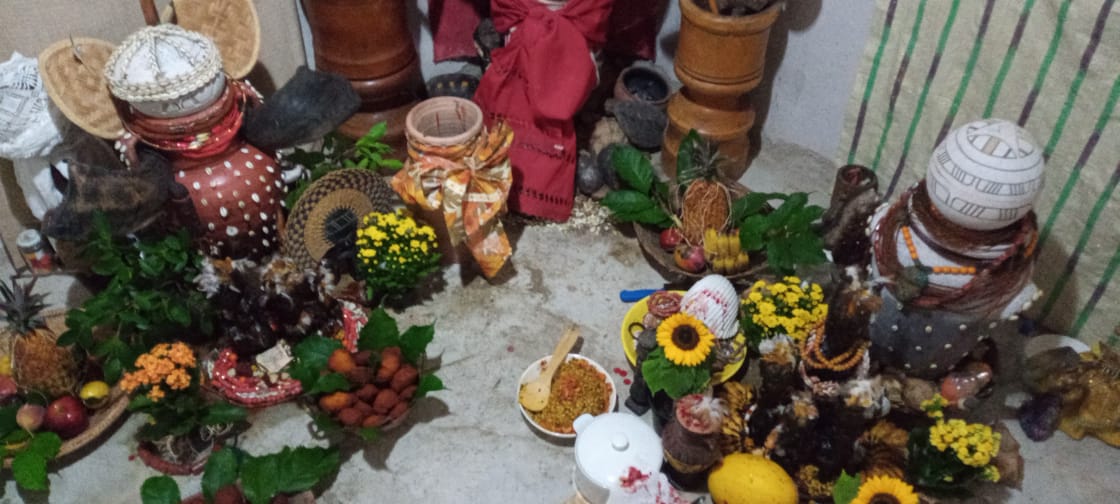
Daniela Calvo
(Universidade do Estado
do Rio de Janeiro)
The reactions of governments to the Covid-19 pandemic range from strict containment measures and reinforcement of the health system to denialism and the prioritization of the economy over health. Similarly, the reactions of different religions to the measures taken vary, including acceptance of the government measures, pressure on the government to remain open, acts of protest and initiatives to contain the pandemic and offer comfort to people.
In Brazil, communities of Afro-Brazilian religions, have since the beginning of March – when the World Health Organization declared the risk of a pandemic and the first cases were recorded in Brazil – recommended social isolation, reduced or cancelled their liturgical calendar, celebrated rites with a minimum number of people (generally only those living in the temples) and conceived new forms of participation, including an extensive use of digital media.
These measures have been adopted, encouraged, and maintained until today – even though the government has allowed the reopening of religious temples and many evangelical churches have resumed their celebrations – by several priests and associations of Afro-Brazilian religions, obtaining almost unanimous support among the members of their communities. Meanwhile, those who celebrated collective rites were harshly criticized on social networks.
In Afro-Brazilian religions, collective rites, in which orixás, spirits and ancestors are worshipped, are important moments when the religious community come together, as it strengthens its ties and establishes continuity with the spiritual world (Bastide 1995; Goldman 2005). Invocations, prayers ,and songs are extended; the offerings and food that will be shared with the orixás, ancestors and among humans are prepared; the orixás or spirits who manifest themselves through embodiment are celebrated with drums, songs and dances.
Rites are also opportunities for concentration and distribution of axé, the life force that constitutes the basis of life and brings protection, health and prosperity (Elbein 2008; Sàlámì and Ribeiro 2011). Breath, which represents a divine particle within human beings, transfers axé and strengthens the process of the transmission of knowledge and accompanies all ritual moments and daily coexistence through songs, invocations and prayers.
With the Covid-19 pandemic, breath, physical contact and meetings became risk factors and object of worries and prevention. This was especially true in communities that value the elderly as custodians of knowledge and as an important part of society. Moreover, these are composed, in their vast majority, of Blacks, who, as a result of structural racism and their socio-economic marginalization, have suffered the most serious consequences of the pandemic, as shown by the mortality statistics for Covid-19 (Calvo 2020).
Although Afro-Brazilian religions had little previous experience with digital communication, new ways were invented to gather, pray together, participate in the distribution of axé, and take comfort, with the hope of spiritual help and closeness to their religious community. With this aim, they have made extensive use of social networks (mainly Facebook and WhatsApp), YouTube channels, and webinars.
Networks were created, at the local and national level, among people who gather to pray and discuss together daily or weekly; the rituals, celebrated by priests with the small groups of cohabiting people, were filmed, transmitted live or published through their social networks (restricted groups on WhatsApp, Facebook pages or YouTube channels). This allowed the devotees of Afro-Brazilian religions to shorten physical distance, since it was possible to attend rites celebrated in distant places. In addition, people who wished to do so could send their requests to priests who communicated them to orixás and spirits during their rituals.
In the Àṣe Idasilẹ Ọdẹ, in Rio de Janeiro, the bath that is performed on the occasion of feasts for the orixás and that transmit their sacred power was sent by mail to the members of the religious community who could not participate in the ritual.
Obaluaié, orixá of smallpox and contagious diseases, who owns the mystery of life and death and the power to spread epidemics and to cure (Verger 1981), was invoked and received numerous prayers and offerings during the pandemic, and his image was carried in procession through the streets of Salvador, to ask for his protection and the end to the pandemic. Videos and photos of these events circulated broadly on social networks.
The cancellation or reduction of rituals and physical distance has created a time of waiting and uncertainty, a suspended time, in line with the interpretation of the pandemic by many priests of Afro-Brazilian religions: as a period of intermission, necessary for human beings to rethink their relationship with nature, their ethical values and behavior, and for nature to breathe and regenerate itself.
References
Bastide, R. (1995). Les religions africaines au Brésil. Paris: Presses Universitaires de France.
Calvo, D. (2020). “They agreed to kill us, we agreed not to die”: Acts of love and resistance to confront Covid-19 by members of Afro-Brazilian religions. A crowd-sourced digital ethnography of the COVID-19 Pandemic. UCL Centre for Digital Anthropology.
Calvo, D. (2019). Cuidar da saúde com a força vital da natureza: tratamentos terapêuticos no candomblé. Ph.D. in Social Sciences Thesis, Universidade do Estado de Rio de Janeiro, Rio de Janeiro.
Elebein, J. dos Santos. (2008). Os Nàgô e a morte. Pàde, Àsèsè e Culto Égun na Bahia. Petrópolis: Vozes.
Sàlàmì, S. [King]; Ribeiro, R.I. (2011). Exu e a ordem do universo. São Paulo: Editora Oduduwa.
Verger, P. F. (1981). Orixás, deuses iorubás na África e no Novo Mundo. Salvador: Corrupio.
Cover Photo: Offerings for Oyá and Oxum in the Àṣe Idasilẹ Ọdẹ during the pandemics. Photo shared among the members of the religious community (Credits: Rebeca Oṣabunmi).
Daniela Calvo is Ph.D. in Social Sciences at the Universidade do Estado do Rio de Janeiro, Rio de Janeiro, Brazil, and Ph. D. in Mathematics at the University of Pisa. She is Member of the Research Group NUER – Nucleo de Estudos de Religião of the Universidade do Estado do Rio de Janeiro. She has been conducting field research on Afro-Brazilian religions since 2011, focusing on health care, ritual, human-nature relationship, transnationalization, divination, cosmology, notion of person. Other researches deal with Tarantism and neo-tarantism, the cult of Maria Lionza, and the relation among witchcraft, politics and consumption in Africa. She can be contacted at dnlclv7@gmail.com.








